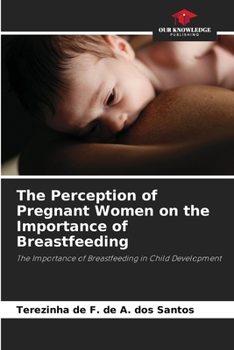The Perception of Pregnant Women on the Importance of Breastfeeding
Biologically, human feeding begins immediately after childbirth, through the milk produced by the mammary glands of puerperal women. This act, embryologically "automatic" in mammals in general, differs with regard to Homo Sapiens, since breastfeeding requires learning on the part of the new mother and the newborn. From then on, once the mother-child bond is established, breastfeeding is fully consolidated and the good development of the offspring is observed over the days and months. However, the "biological act" walks on the anthropological and holistic nuances, where maternal fears and anxieties can impair the good performance of breastfeeding. Thus, it is necessary that technical knowledge be disseminated to the general population, through public policies of the bodies that regulate health. In this context, in Brazil, through Low Risk Prenatal Care, developed in the Primary Care of the Unified Health System, pregnant women are monitored from pregnancy until the end of the six months suggested for Exclusive Breastfeeding. Therefore, this monitoring of lactating women is of paramount importance for good breastfeeding.
Format:Paperback
Language:English
ISBN:6206230848
ISBN13:9786206230847
Release Date:July 2023
Publisher:Our Knowledge Publishing
Length:52 Pages
Weight:0.20 lbs.
Dimensions:0.1" x 6.0" x 9.0"
Customer Reviews
0 rating





